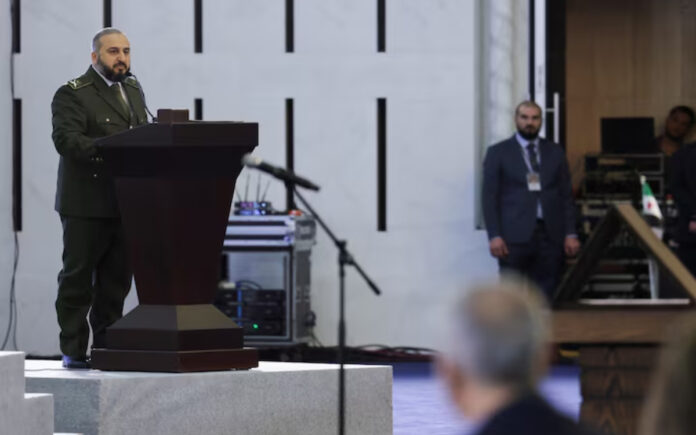Damascus: Syria’s interim government has issued a 10-day ultimatum to all remaining small armed groups to formally integrate into the Defence Ministry, warning of unspecified consequences for non-compliance. The directive comes as interim President Ahmed al-Sharaa seeks to assert full control over the country following the ouster of longtime leader Bashar al-Assad six months ago.
The country’s Defence Minister, Murhaf Abu Qasra, released a statement late Saturday declaring that a significant portion of military units had already been absorbed into a unified state security framework. He called the move a major step toward institutional consolidation.
“We stress the need for the remaining small military groups to join the ministry within a maximum period of 10 days from the date of this announcement, in order to complete the efforts of unification and organisation,” said Abu Qasra.
While the statement did not name specific factions, it appeared to target smaller groups not yet aligned with Damascus. It did not appear to be directed at the U.S.-backed Syrian Democratic Forces (SDF), a Kurdish-led coalition in the northeast, which earlier this year signed an agreement with President Sharaa to integrate with state institutions.
Post-Assad Challenges
Since the fall of Assad, Syria has struggled to contain the widespread presence of weapons and disparate armed groups, many of whom operate outside state authority. These include both factions loyal to the current administration and those with varying degrees of opposition.
In December, several Sunni Arab rebel factions that previously opposed Assad agreed to dissolve and merge into the Defence Ministry, a move seen as part of Sharaa’s broader strategy to unify the country under a single security command.
Also Read | Russia Shoots Down 25 Ukrainian Drones Along Border, Reports Civilian Death in Kursk
Syria continues to witness episodic outbreaks of violence, with communal and sectarian tensions flaring across multiple regions. In March, retaliatory killings by Sunni militants resulted in the deaths of hundreds of Alawites following reported assaults by pro-Assad loyalists in the coastal region. In April, deadly clashes erupted between Sunni militants and Druze fighters near Damascus, leaving over 100 people dead.
International Backing and Internal Security Moves
Sharaa’s interim government received a significant diplomatic endorsement last week when U.S. President Donald Trump met with him and pledged to lift long-standing sanctions on Syria. The decision marked a turning point in Syria’s international standing, signaling renewed support from Washington.
Interior Minister Anas Khattab welcomed the move, stating it would “consolidate security and stability and promote civil peace in Syria and the region.”
Also Read | Pope Leo XIV: Church Must Be United, Not Ruled by Power
Meanwhile, Syrian forces continue to carry out security operations across the country. On Saturday, authorities conducted targeted raids in Aleppo, aiming to dismantle lingering Islamic State cells believed to be operating in the area.
The integration of all military groups into a centralised defence framework is seen as a crucial step in Syria’s effort to restore national unity, ensure public safety, and move toward long-term stability.



